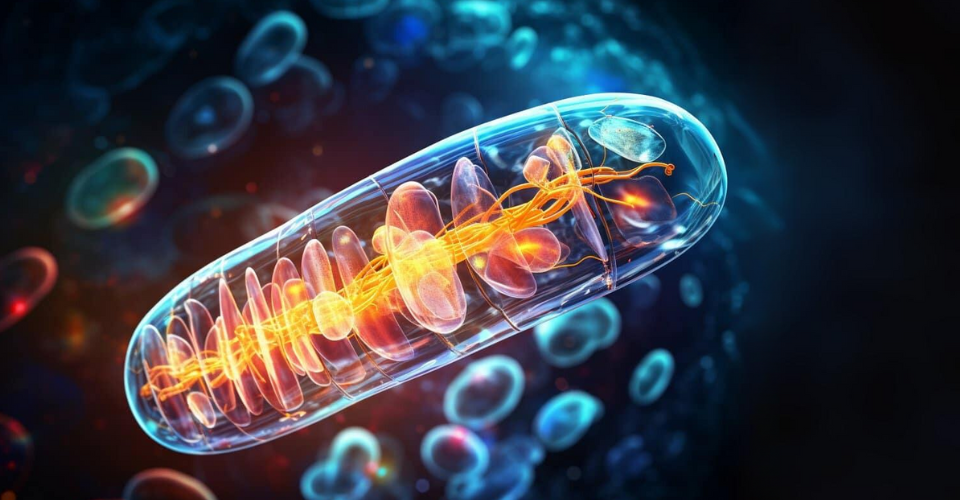Mind-Body Connection Discovered In Columbia University Research
A significant connection has been found by Columbia University researchers between our experiences, our emotions, and brain health. The study published in the Proceedings of the National Academy of Sciences (PNAS) reveals mitochondria as playing a key role in this association.
Positive and Negative Experiences Have Diverse Effects
It was realized that older adults who had positive psychosocial experiences such as having a larger social network or a strong sense of purpose tend to have healthier brain mitochondria. On the other hand, negative experiences such as social isolation and depression were associated with poor mitochondrial function.
“The way we think affects our biology, risk for disease, and potential for health more than anything else,” said Martin Picard, associate professor and endowed chair in energy and health. “We all know from many years of research plus our own personal experience that how we feel influences how healthy we are. But there is hardly any science about that.”
Psychobiology of Mitochondrial Connection
Mitochondrial interaction within the brain is vital for cellular energy transmission and production. “We will need to identify the links between what we live through emotionally to the biology underlying energy,” said Picard on mitochondrial psychobiology which was focused on by Dr Caroline Trumpff among others.
In order to investigate these connections they examined data from two long-term studies conducted on nearly 450 elderly participants in America. These individuals had given detailed descriptions about their psychosocial experiences over twenty years before agreeing to donate their brains so that postmortem analysis could be done.
Psychosocial Experiences Scoring And Mitochondrial Health
To measure positive or negative events in their lives over time, these researchers designed composite scales based on different aspects involved in each case assessment. Constructing them separately enabled this team conclude some factors that added up into a positive or negative psychosocial score. In the former case, these factors were larger social network, more social activity and stronger sense of purpose. The latter category included being socially isolated, having depressive symptoms, other negative moods and perceiving stress.
The biological analysis specifically focused on the dorsolateral prefrontal cortex which is important in executive functions and emotional regulation. Using advanced proteomic methods, the scientists gauged the level of mitochondrial proteins by grouping some genes that were related to each other into seven categories referred to as “mitotypes’’.
Key findings: Psychosocial experiences vs Mitochondrial Function
Mitochondrial protein abundance was found to be closely linked to psychosocial experiences according to this study. Those individuals with higher positive psychosocial scores had greater levels of mitochondrial proteins especially those involved in oxidative phosphorylation (OxPhos) – a key cellular energy production process. These proteins had lower amounts with increasing negative psychosocial scores.
“Subjective psychosocial experience has never been linked to brain biology before; however our research shows that older people’s state of mind can influence their brain mitochondria,” said Trumpff, an assistant professor of Medical Psychology.
Psychosocial Experiences Influence Brain Cells Differently
Interestingly enough, glial cells may respond differently than neurons when it comes to positive or negative interactions. On one hand astrocytes, microglia and oligodendrocytes among others showed high expression of mitochondrial genes as compared to neurons during conditions favoring positive experience while in case of negative experiences neurons show reduced expression of such genes.
In addition, Glial cells aid neurons in the brain by providing nutrients as well as maintaining homeostasis. Therefore, heightened mitochondrial activity following positive experiences might even improve these functions and result in better overall brain health. Also, it is possible that neurons may minimize their mitochondrial activity to optimize energy utilization or lessen oxidative stress.
Future Directions and Implications
It should be noted that significant variation of psychosocial experiences linked to brain health can account for 18-25% of the variance in abundance of complex I proteins which are a critical enzyme involved in the OxPhos pathway. “This is an impressive psycho-biological correlation range when compared with other similar studies,” Picard notes.
The researchers also note some shortcomings such as the reliance on postmortem brain samples. The development of non-invasive techniques for measuring mitochondrial health in living individuals could greatly advance this field.
“Our long-term goals are to create a science of health and healing that integrates the science of energy with the human experience of energy,” Picard said. “This will help us bring the mind into medicine and create a more holistic framework to help each person reach their optimal state of health.”
Authors include Caroline Trumpff, Anna Monzel, Carmen Sandi, Vilas Menon, Hans-Ulrich Klein, Masashi Fujita, Annie Lee, Vladislav A Petyuk,Cheyenne Hurst,Duc M Duong,Nicholas T Seyfried,Alyssa Wingo,Gustavo Macias,Minghao Wang,Hannah Stoveken,Alexander Sorkin,Lindsay Fitzgerald,Kristopher Nazor,Yanling Wang,Terry Gaasterland,Randy Reinhardt,Gerald Grant,Pavel Sumazin,Jeremy Rich,Derek Paugh,Frank Edenhofer,Xianfang Wu,Bob Carter,Igor F Palacios,Vivian G Cheung,Yoshinori Yoshida,Oren Becher,Maryam Fouladi,Scott L Pomeroy,Douglas S Hawkins,Timothy Triche Jr.,Renee Dougherty,Cory Brouwer,Alexander Jakowec,Peter Vogelstein,Eduard Yakubov,Sofie Salama,David Haussler,Philip M Potter,Kara Bernstein,Vladimir Amani,Andi K Cani,Ronald Grant,Martin Picard,Luigi Ferrucci,Galen Hostetter,Michael C Oldham,David J Farley,Bennett Van Houten,Wolfgang Sommermeyer,Madhav Thambisetty,Yiyun Huang,Xia Yang and David A Bennett.



